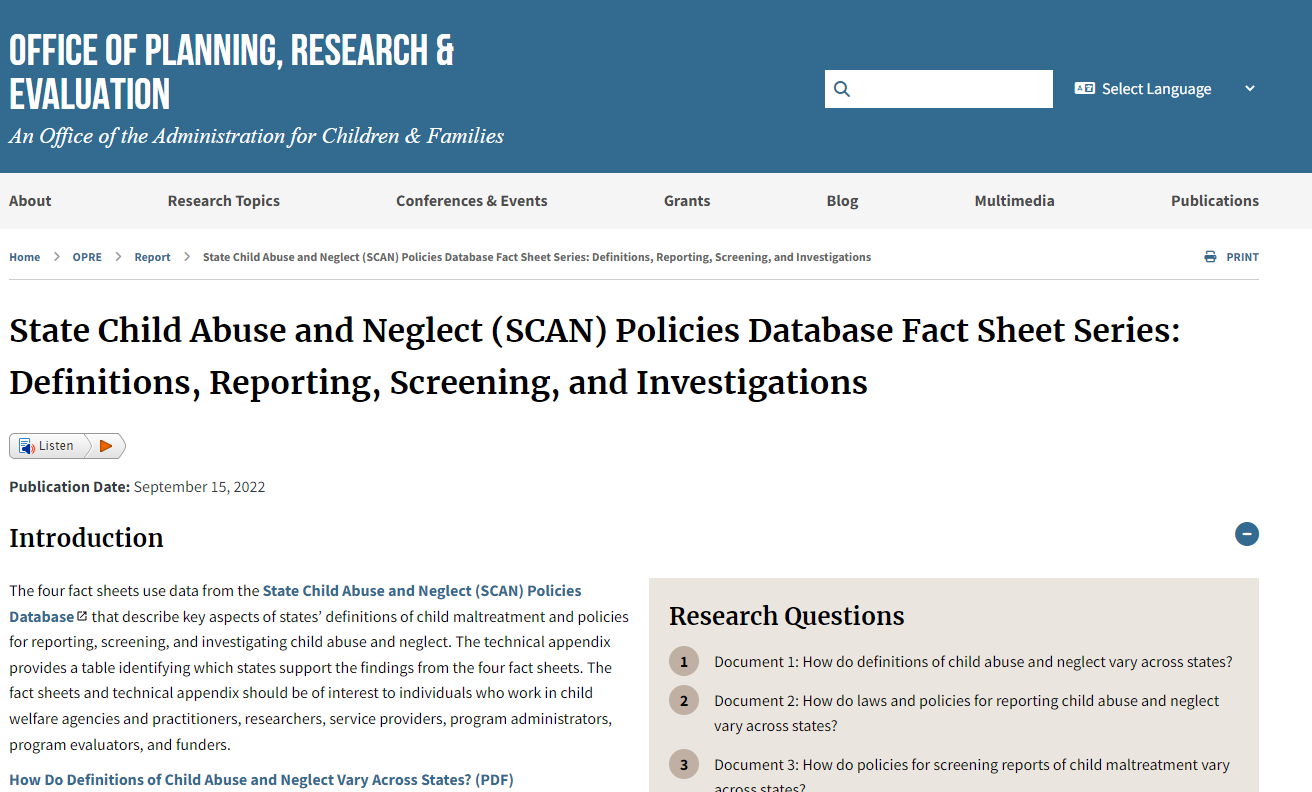The Administration for Children and Families prepared four fact sheets on states’
definitions of child maltreatment and policies for reporting, screening, and
investigating child maltreatment. Using data from the State Child Abuse and Neglect
(SCAN) Policies Database, the report compares definitions and procedures for 50
states, Washington D.C., and Puerto Rico. For example, all states included physical
abuse in the definition of child maltreatment, while 73 percent included education
neglect and less than half (46 percent) included female genital mutilation. The
reports also consider the prevalence of specific exemptions from child maltreatment
definition: all states define relinquishing newborns in accordance with state safe
3
haven laws as an exemption from child maltreatment, while 58 percent, including Maine, included financial inability to provide for a child as an exemption. Half of states exempt substance-exposed newborns from the definition of child maltreatment (Maine does not). The four fact sheets include similarly formatted information on state procedures for reporting, screening, and investigating child maltreatment, and a full listing specific definitional elements and where states stand on each is available here.

